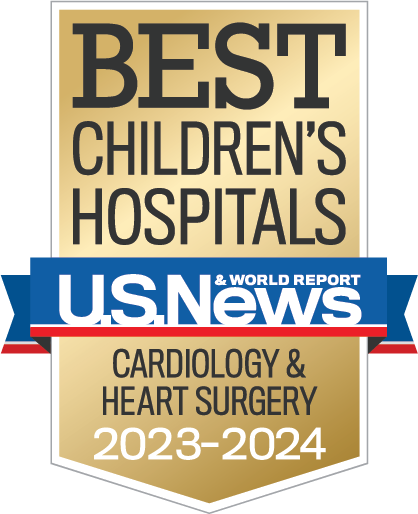- Doctors & Departments
-
Conditions & Advice
- Overview
- Conditions and Symptoms
- Symptom Checker
- Parent Resources
- The Connection Journey
- Calm A Crying Baby
- Sports Articles
- Dosage Tables
- Baby Guide
-
Your Visit
- Overview
- Prepare for Your Visit
- Your Overnight Stay
- Send a Cheer Card
- Family and Patient Resources
- Patient Cost Estimate
- Insurance and Financial Resources
- Online Bill Pay
- Medical Records
- Policies and Procedures
- We Ask Because We Care
Click to find the locations nearest youFind locations by region
See all locations -
Community
- Overview
- Addressing the Youth Mental Health Crisis
- Calendar of Events
- Child Health Advocacy
- Community Health
- Community Partners
- Corporate Relations
- Global Health
- Patient Advocacy
- Patient Stories
- Pediatric Affiliations
- Support Children’s Colorado
- Specialty Outreach Clinics
Your Support Matters
Upcoming Events
Child Life 101
Wednesday, June 12, 2024Join us to learn about the work of a child life specialist, including...
-
Research & Innovation
- Overview
- Pediatric Clinical Trials
- Q: Pediatric Health Advances
- Discoveries and Milestones
- Training and Internships
- Academic Affiliation
- Investigator Resources
- Funding Opportunities
- Center For Innovation
- Support Our Research
- Research Areas

It starts with a Q:
For the latest cutting-edge research, innovative collaborations and remarkable discoveries in child health, read stories from across all our areas of study in Q: Advances and Answers in Pediatric Health.


Transitioning to Adult Congenital Heart Disease Care
We are one of the largest programs in the country treating patients with heart problems from before birth through adulthood, with exceptional outcomes.

Adolescence can be a confusing time for most, even those without a congenital heart condition. Through Children's Hospital Colorado's Adult Congenital Heart Disease Program, we help patients navigate the physical, mental and social changes that come with adolescence and help them make a smooth transition from pediatric to adult-based care.
To help ensure that we are providing the best care, we monitor our surgery outcomes and publish them on our website. This helps us constantly improve our program and lets our patients know why we are the best option for them. Learn more about our heart surgery outcomes and why they are important.
Support for young adults with congenital heart defects
By supporting CHD patients throughout their teenage years, we can help them achieve success as adults. Prior to their transition to adult care, our cardiology experts help patients with:
- Understanding their heart condition, treatments they have received and potential issues that may arise over time
- Taking all medications as prescribed
- Understanding the need for lifelong care with a cardiologist trained in ACHD
- Learning what symptoms to watch for and when to call their cardiologist
- Learning about potential future heart health needs, including testing, surgeries and procedures
- Understanding how lifestyle choices like exercise, alcohol, smoking and drugs can affect people with congenital heart conditions
- Learning about family planning needs, including contraception, considerations for pregnancy and genetic implications
- Finding a primary care doctor after age 18
- Maintaining medical insurance/coverage
- Completing an advanced directive
We also work with patients to determine if there may be any barriers to care and to provide additional resources to help ensure proper lifelong care.
What to expect during the transition from pediatric to adult heart care
We focus on providing a smooth transition for adolescent patients living with congenital heart defects. Thanks to our joint program with University of Colorado Hospital, we ensure that these special patients receive coordinated care throughout their lives.
When does the transition education process begin?
The transition education process can begin in adolescence when the patient is still being seen by their pediatric cardiologist. Our specially-trained transition nurse coordinator begins by assessing the patient's developmental and cardiac educational level. Then, in collaboration with the patient and their healthcare team, we develop a plan tailored to each individual to prepare them to take over their own healthcare as they enter into adulthood. This process can occur over several visits and is flexible enough to change as the patient matures or new issues arise.
Will I still be seen at Children's Colorado?
Current Heart Institute patients are encouraged to continue their care with the Adult Congenital Heart Disease Program, a joint program between Children's Colorado and University of Colorado Hospital. Our adult congenital heart disease team sees patients at both institutions, so you can be sure you will always receive coordinated care from the same caregivers.
We work closely with patients and families to ensure they understand where they need to go for appointments and care.
Learn more about your visit to the Heart Institute.
Additional resources for teens with congenital heart disease
The following organizations provide resources and support for teens and adults with congenital heart disease:



 720-777-0123
720-777-0123



